Fall 2018 Business Law: Case Study on Janus v. AFSCME Decision
VerifiedAdded on 2023/06/03
|5
|778
|431
Case Study
AI Summary
This case study analyzes the Supreme Court case Janus v. AFSCME, focusing on the legal issue of whether mandatory union dues for public employees violate the First Amendment's guarantee of free speech. The case involves Mark Janus, a child-support specialist, who challenged the deduction of union fees from his paycheck. The study employs the FIRAC method (Facts, Issue, Rule, Analysis, Conclusion) to dissect the case. The facts outline Janus's challenge to the fees deducted for being part of a union. The central issue is whether these fees infringe on free speech rights. The rule of law involves the First Amendment and prior rulings like Abood v. Detroit Board of Education. The analysis examines how the court applied these rules to the facts, ultimately ruling in favor of Janus, concluding that compelling public employees to pay union dues for collective bargaining violates their First Amendment rights. The study references the court's decision and related legal principles.
1 out of 5
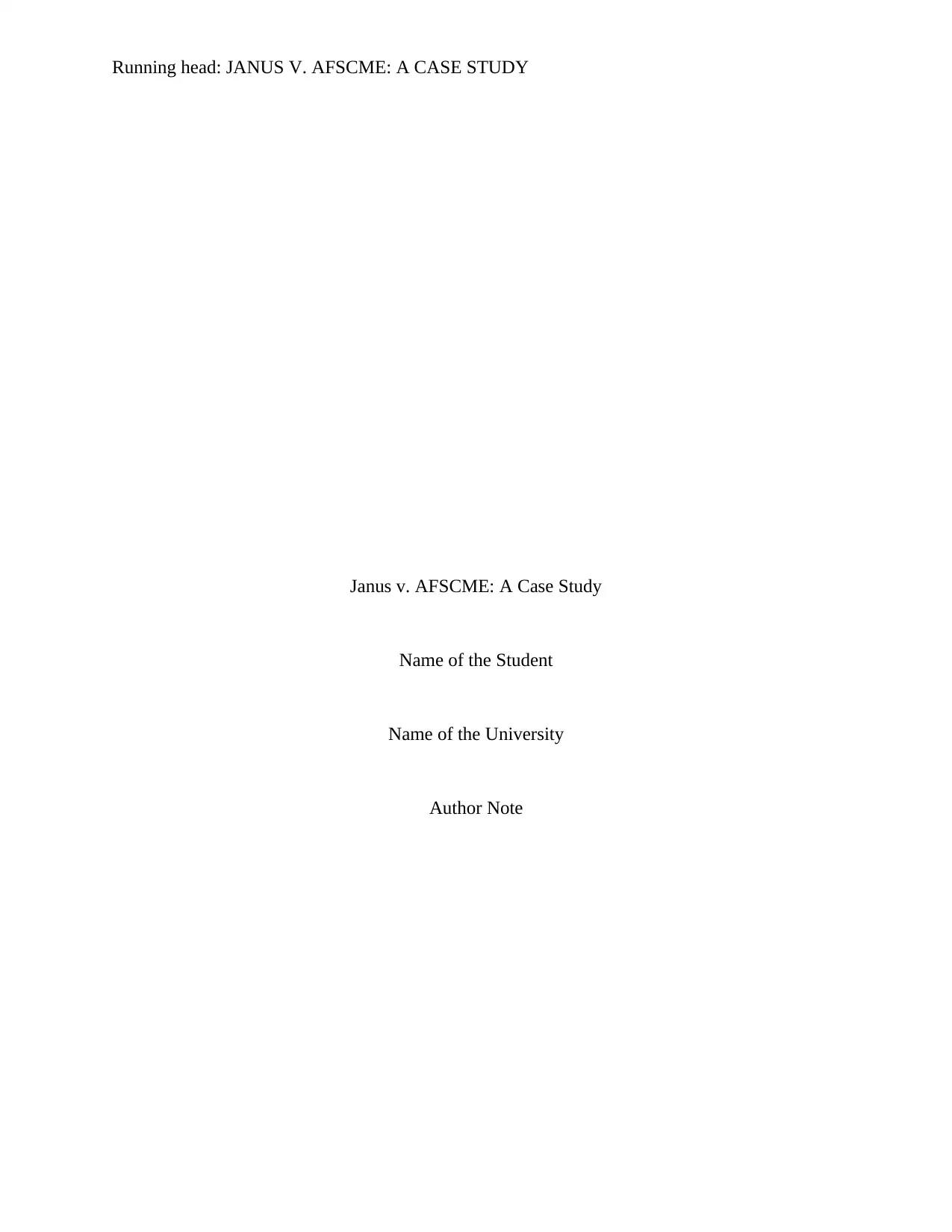
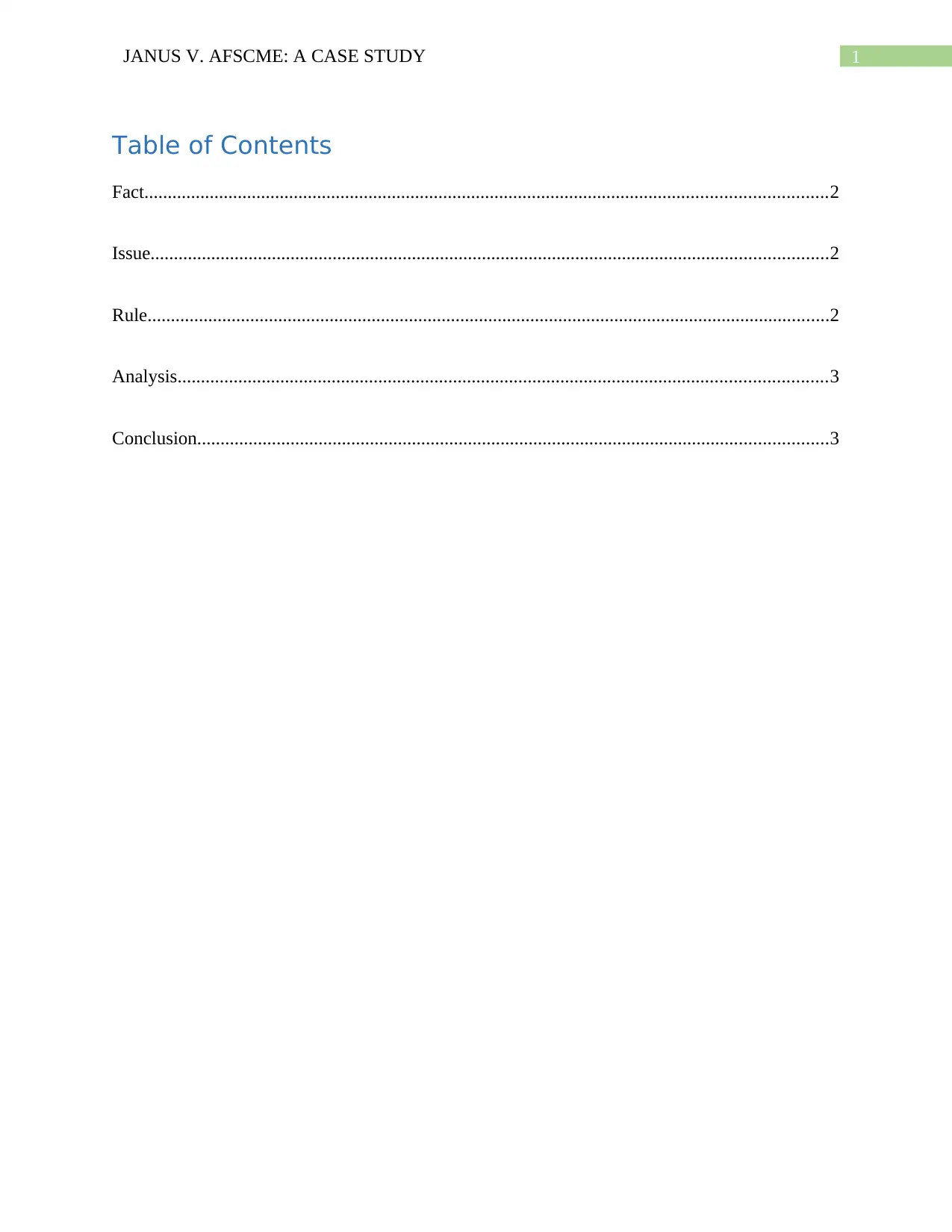
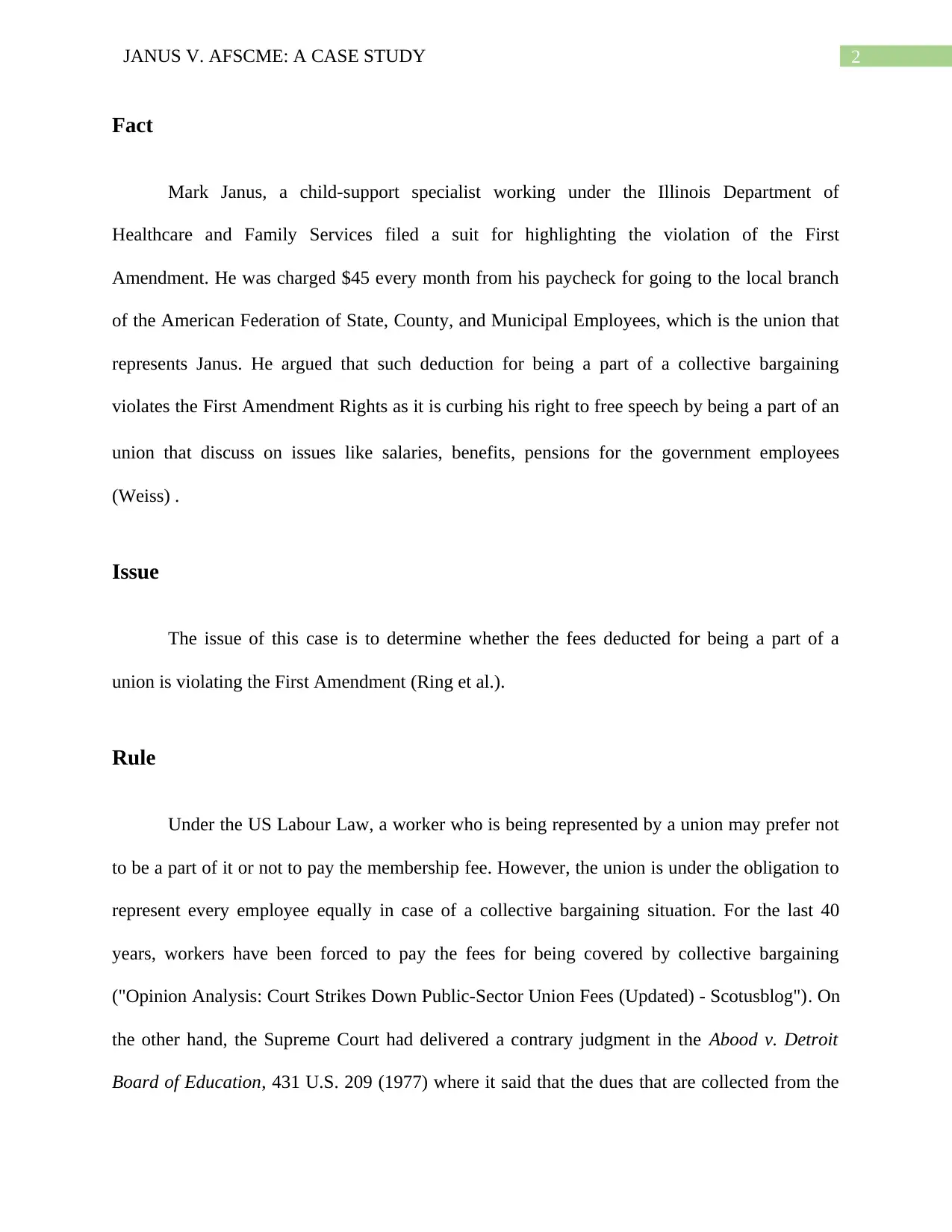

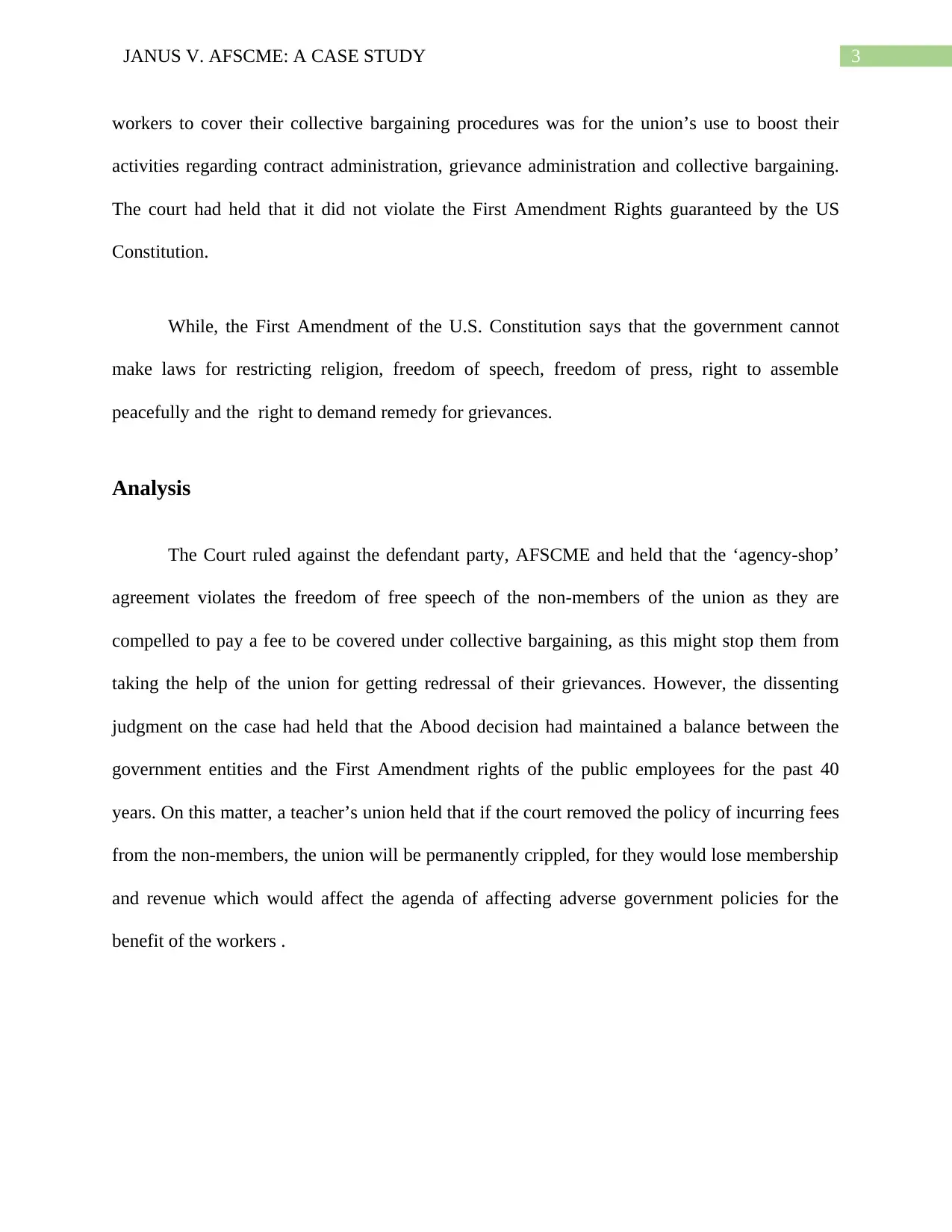
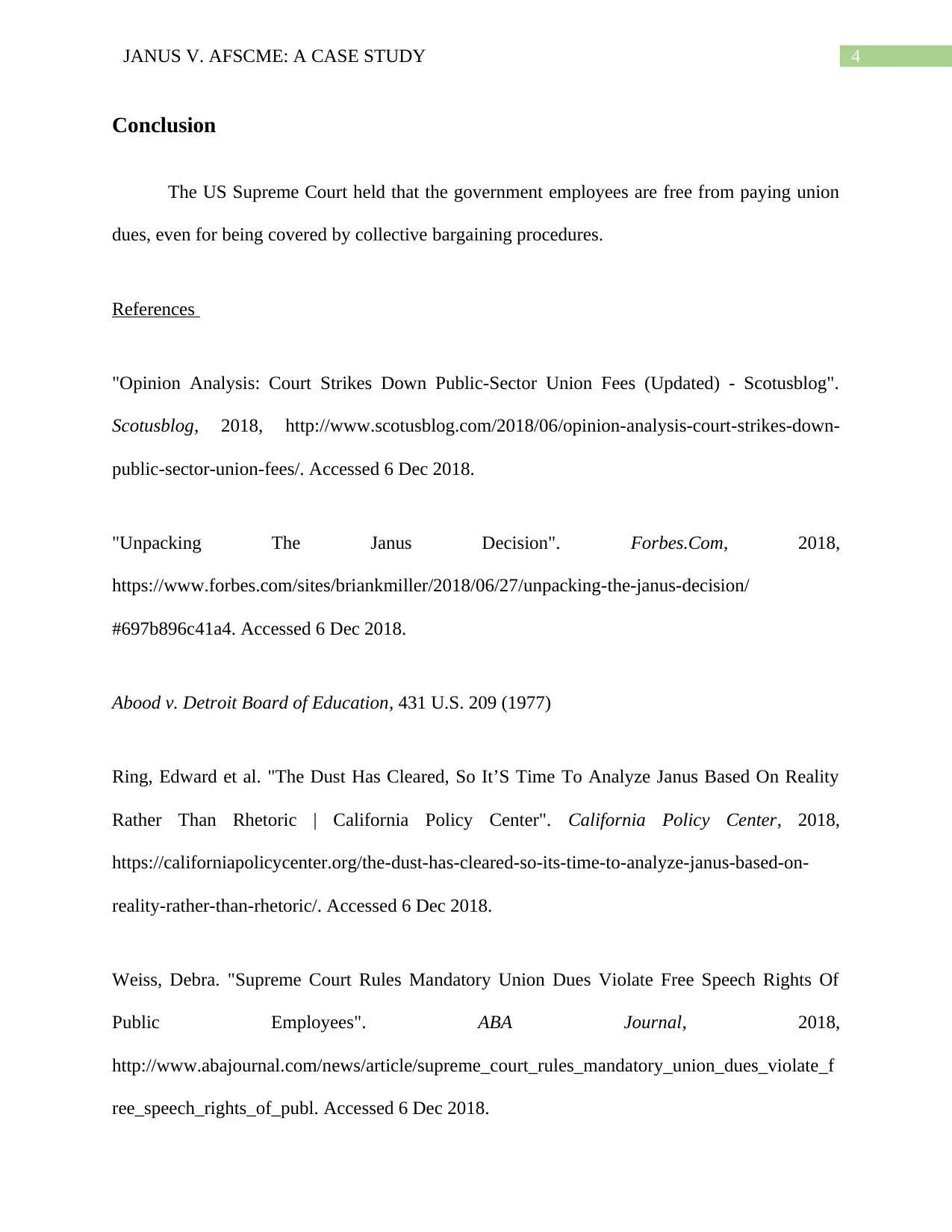





![[object Object]](/_next/static/media/star-bottom.7253800d.svg)